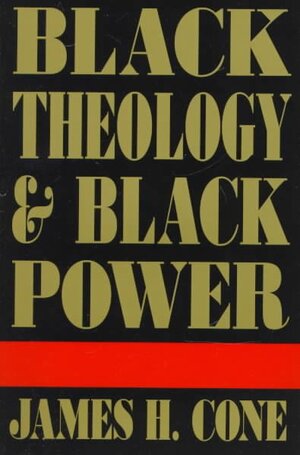intercessory prayer takes it to the next level but if you're praying to god and jesus you're either not doing monotheism or you have to do the gymnastics about god impregnating his mother to give birth to himself and people tend not to like having that pointed out.
Sincere answer:
Jesus was likely an apocalyptic preacher who was crucified by the Romans but developed a following in the course of his ministry. Shortly after his death (and maybe just before), his followers saw him as a man who had the “divine” about him, like a messenger from God. Eventually, his followers started treating him like he was still a man but who was adopted by God as his son. Then eventually (maybe early 2nd century?) you eventually had this notion of Jesus as actually God. They started with a man and kept heaping glory on him until they made him God.
So over the decades, you have all these contradictory texts about Jesus’ divine versus human nature. When you get to the 3rd and 4th centuries, eventually church leaders wanted to create one harmonized view of who Jesus was. But the the problem is your sacred texts all describe him in contradictory and mutually exclusive terms.
So that did they do? They came up with the doctrine of the trinity to try and address all these contradictory views into one doctrine. But the trinity fundamentally does not make sense because it tries to take these contradictory views and mash them into a whole.
A good book if you want to know more is Bart Ehrman’s How Jesus Became God.
The alternate theory is Jesus never existed and Paul was the prophet who spread the religion. Paul is the one who thought Jesus existed in the spirit realm. The last supper appeared to him in a vision as did all the other acts, including his death. So in this version, which is gaining more traction, Jesus was always a part of God because he only dwelt in God's realm. The death, resurrection, all that was given to Paul in his visions and happened outside of heaven but in an spiritual arena.
Now the reason we think this may have been the case is because all of the most original writings in Acts and some of the other books and so on never mention any meeting of Jesus in the flesh or existing in the flesh but he does talk about visions of Jesus. All the writings we have from Paul of Jesus in the flesh are much later additions. Paul is the only author in the bible who could have written about Jesus in the first hand. All other books came much later.
There are a few flaws with this theory and mostly come down to how we think translations of some things should read. It is also important to know that this view is still a minority but the majority of biblical scholars are believers and therefore are quick to dismiss it.
My understanding is that the commonly accepted secular position is that Jesus was a real historic person. How much of that is due to interpretation of Christian scripture?
There are very, very few people who deny Jesus actually existed. It's considered a fringe theory and isn't accepted in current academia. Bart Ehrman is very openly atheist after leaving Christian fundamentalism and he doesn't even consider Jesus mythicists worth responding to.
Kinda? Paul was definitely a huge part of spreading Christianity, but we also know many important churches had no association with him at all. He writes to the Roman church as someone who's never visited them. We never hear of him visiting Alexandria, another very important early Christian site. One of the biggest names at the beginning of the second century is in France (St Irenaeus of Lyon). Paul is a very important part of the early movement, for sure, but the other disciples and their disciples were too.
As far as first hand writings: Paul's letters are the earliest NT docs (1 Thessalonians is early 50s we think), that's true. But a few of the other works aren't much later. For example, Mark's gospel is not that much later, around 60-70CE. Mark very easily could have interviewed eye witnesses or descendants of them, though this point is heavily contested admittedly. But yes, the rest are later. Matthew and John were written later still in the 80s, Revelation and John's Gospel sometime in thr 90s and Acts was probably written around the turn of the century. The pastoral letters may be as late as 125CE. So the foundation of the theory seems okay, but I don't know of any historian or scholar who argued the above theory personally.
Is Q supposed to be meaningfully older than Mark? I know the synoptics all are believed to be taking from it, but I don't remember ever being told how distant of a predecessor it was imagined to be.
I think it's argued to be a sayings text like the Gospel of Thomas compiled in the 40s/50s. I've actually leaned towards scholarship by Mark Goodacre and others who argued against the existence of Q. His books and blogs have more on that, but he's pretty convincing.
Ok so it's like "Jesus was a real guy" but also "Paul is why we know about this real guy"
Right with the exception of Mark's gospel which is independent from Paul. Last time I looked, the non Christian sources' authenticity (Josephus and Tacitus) are debated heavily, and it's been a long time since I've looked at that so I don't know the newest research there.
If you are interested in this, there are hundreds on books on "the historical Jesus" (distinguished from the Jesus of faith). The Oxford Handbooks and Cambridge Companion series are great and approachable or you can go absolutely bonkers with this 3300 page tome. https://libgen.is/book/index.php?md5=D597337E74CEC5AA08EB9280D05BE570. Also of note, Crossley and Miles approach historical Jesus studies through class conflict in an approachable and easy read: https://libgen.is/book/index.php?md5=78F35D96CD1497BED0C59C5DD2ACC50F
Paul making up some dude who was the son of God makes no fucking sense when Paul could just say that he was the son of God. Why would Paul make up some dude who could heal people and raise people from the dead when Paul could just say that he himself healed people and he himself raised people from the dead? Like, why would peasants believe some random miracle worker they've never seen before (because he's not real) but not the actual huckster saying that he's a miracle worker? Imagine if Joseph Smith said that he knew a guy who knew a guy who knew another guy who stuck his head in a hat to decipher a bunch of text. Why would anyone remotely believe or care what Joseph Smith had to say?
Yes, i think it’s a solid theory that Jesus the real person believed the world was going to end within his own lifetime or thereabouts. It’s crazy to re-read the gospels with this in mind.
I head these two sayings all the time growing up lol.
The Italian version switches out green bell peppers for carrots as far as I know.
Celery, onion, and carrot is French mirepoix. It might also have roots in Italian but not that I'm aware of.
thats the aromatic base for a ton of indian cooking, so all good
It's probably one of those things Italian cuisine stole from the French, because every ragu or bolognese starts with a "soffritto" of carrots, onion and celery, and often some cured pork as well, like pancetta.
I can buy that. I've used celery, onion, and carrots in a bolognese before. Just didn't really think about it since I used it for like every soup I make and it was just familiar lol.
just god setting up free email accounts to keep using the same free worship trial over and over again
God creating sockpuppet accounts to argue with people on Reddit about corvids
Anyone who unironically says "sky daddy" gets the fucking wall
Just the same body, mind, and spirit teachings common to a huge swathe of human religions, personified in the most patriarchal and annoying way possible
Isn't that every major monotheistic religion? Especially all the Abrahamic religions.
Is monotheism really a wonderful advance in the history of thought, a qualitative progress? There are plenty of cunning minds (but when you say cunning, you could as well say ill-intentioned or malign, inspired by the Devil) who draw a parallel between this unique God (who is represented in the popular imagination, if not in the purified vision of the learned, as an old man with a white beard, a symbol of wisdom and authority) and the patriarch of the patriarchal system, the autocrat of the power systems. In this imagery, which adequately reflects what is actually experienced, it is obvious that the wise old male is closer to God than a woman or a youth. This is a projection into heaven that legitimizes the patriarchal order and autocracy which prevails on earth. In addition, the elimination of female deities, always important in nonmonotheist religions, only accentuates patriarchal domination. Those cunning minds will add that this only and all powerful God deprives them, poor bastards, of all power.
- Samir Amin, Eurocentrism
The religious world is but the reflex of the real world. And for a society based upon the production of commodities, in which the producers in general enter into social relations with one another by treating their products as commodities and values, whereby they reduce their individual private labour to the standard of homogeneous human labour – for such a society, Christianity with its cultus of abstract man, more especially in its bourgeois developments, Protestantism, Deism, etc., is the most fitting form of religion
- Karl Marx
It is because they have their birth in the pagan religions of the time and vestiges of that paganism is littered throughout the bible. That is a reason there are a million names for the devil, they are generally just the other deities of the greater religious beliefs of the levant of the time. The other competing gods get "demonized" literally.
https://twitter.com/JeremyMcLellan/status/874376179570147332
The Father, The Son, and The Holy Ghost, my child. Now do 12 Hail Marys and come back next week.
There's a father and also his son and at some point some ghost appears. They are all divine but they are all the same person because otherwise it would be polytheism which is bad somehow.
The only thing I could think of that comes close to explaining the trinity without conceding that it's not supposed to make sense is if you imagine God to be like a three-headed hydra with each head corresponding to the Father, Son, and Holy Spirit.
-
It is monotheistic: In most religious traditions, if you have a god with multiple heads, you would just say that the god has multiple heads. You wouldn't say that multiple gods share the same body. Thus, this hydra conception preserves monotheism.
-
It isn't God wearing three different masks: I forgot the name of the heresy, but the heretical belief is that the trinity is just God wearing three different masks like ancient Greek theater. The three-headed hydra isn't heretical in that sense because the three heads have distinct personalities. When Jesus laments of being forsaken by God the Father, it isn't God talking to himself, but a hydra head pleading to another hydra head.
-
It presumes each part of the trinity is eternal: There's various related heresies that try to subordinate one part of the trinity to another, usually the Son being subordinated to the Father for obvious reasons. So one heresy is that Jesus started out as human but became God. Arianism also has this subordination as well. The three-headed hydra conception doesn't have a hierarchy. All hydra heads are equal with respect to one another.
Apparently, there is art that depicts the Trinity as a dude with three heads, but I guess this isn't popular because it's resembles Hindu religious iconography.
-






















